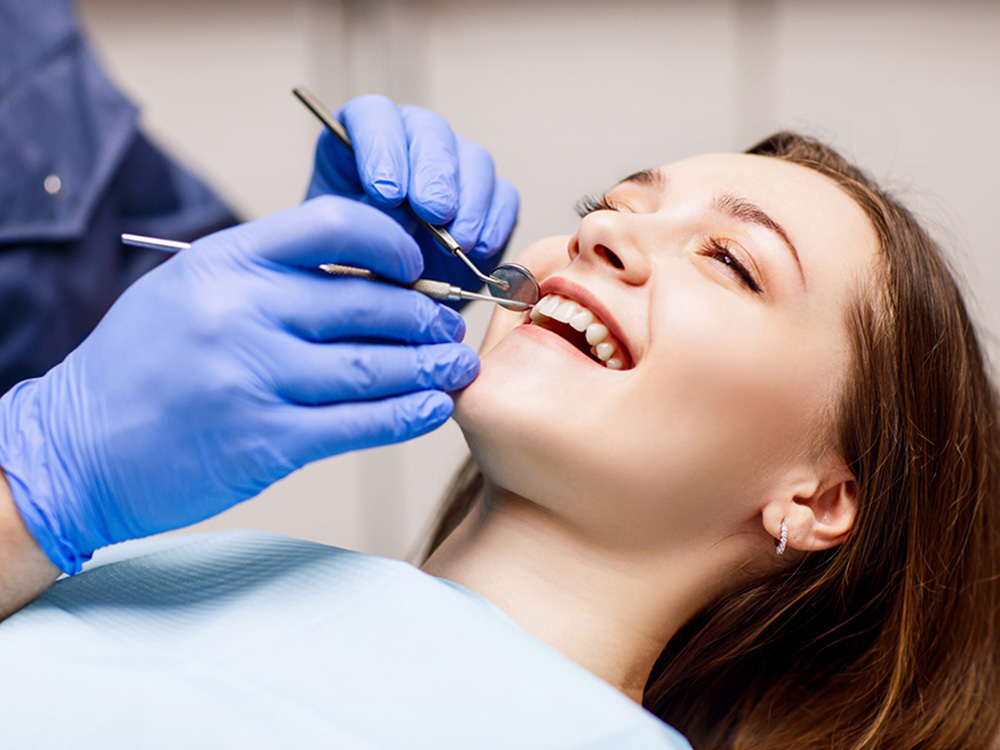Inteldevconference
Intel HPC Software WorkshopFrom Cavities to Cancer: What Your Dentist Can Catch During a Checkup
Tuesday , 25, June 2024 Business and Management Leave a commentRegular dental checkups are not just important for maintaining a healthy smile; they can also help catch potential health issues early on. Your dentist is trained to examine more than just your teeth and gums, and during a routine visit, they can spot various signs and symptoms that may indicate a more serious underlying condition. From cavities to cancer, here's what your dentist can catch during a checkup:
Cavities and Gum Disease
One of the most common issues that dentists look for during a checkup is cavities and gum disease. These oral health problems can lead to discomfort, infection, and even tooth loss if left untreated. Your dentist will carefully examine your teeth and gums for any signs of decay or inflammation. Catching cavities and gum disease early allows for prompt treatment and can help prevent further damage to your oral health.
What Your Dentist Does:
- Examines each tooth for signs of decay
- Checks the gums for inflammation or recession
- Takes X-rays to detect cavities between teeth
- Performs a periodontal exam to assess gum health
Oral Cancer
During a dental checkup, your dentist will also perform an oral cancer screening. Oral cancer can affect the lips, mouth, throat, and tongue, among other areas in the oral cavity. Early detection of oral cancer is crucial for successful treatment and improved outcomes. Your dentist will look for any abnormal lumps, sores, or discoloration in your mouth that may indicate the presence of oral cancer.
What Your Dentist Does:
- Examines the lips, tongue, cheeks, and throat for any unusual changes
- Feels the jaw and neck for lumps or swelling
- Uses special screening tools to detect abnormalities not visible to the naked eye
- Recommends further testing if any suspicious areas are found
Systemic Health Conditions
Believe it or not, your oral health is closely linked to your overall health. Certain systemic health conditions can manifest symptoms in the mouth, making your dentist an important part of your healthcare team. Conditions like diabetes, osteoporosis, and even heart disease can show signs in the oral cavity. By examining your teeth, gums, and oral tissues, your dentist may be able to detect signs of underlying health issues.
What Your Dentist Does:
- Looks for signs of diabetes, such as gum disease and slow wound healing
- Checks for bone loss in the jaw, which may indicate osteoporosis
- Notices oral symptoms of acid reflux, eating disorders, and other systemic conditions
- Collaborates with your healthcare provider for comprehensive care
Bruxism and Jaw Disorders
Bruxism, or teeth grinding, and temporomandibular joint (TMJ) disorders are common conditions that can cause jaw pain, headaches, and tooth wear. Your dentist will assess your bite, jaw movement, and signs of wear on your teeth to determine if you have bruxism or TMJ issues. Early detection of these conditions can prevent further damage and alleviate symptoms through appropriate treatment.
What Your Dentist Does:
- Checks for signs of teeth grinding, such as worn enamel or chips
- Assesses jaw mobility and functionality
- Asks about symptoms like jaw pain, headaches, and clicking or popping sounds
- May recommend a bite splint or other therapies to manage bruxism or TMJ disorders
Nutritional Deficiencies
Your dentist can also identify potential nutritional deficiencies by examining your oral health. Deficiencies in vitamins and minerals, such as vitamin C, vitamin D, and calcium, can impact the health of your teeth and gums. Your dentist may notice signs like bleeding gums, mouth sores, or delayed wound healing that could indicate a lack of essential nutrients in your diet.
What Your Dentist Does:
- Looks for signs of vitamin deficiencies, such as bleeding gums or weakened enamel
- Asks about your diet and eating habits
- Recommends dietary changes or supplements to improve your oral and overall health
- Makes referrals to a nutritionist or healthcare provider for further evaluation

Please give us your valuable comment
You must be logged in to post a comment.